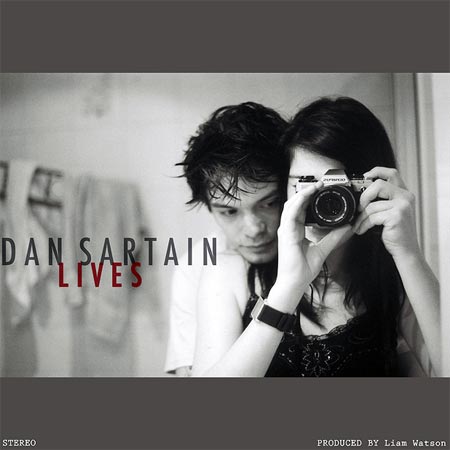
The ironically life-affirming “Atheist Funeral” has a bassline which creeps like the Grim Reaper beneath lyrics about controlling one’s own life: “We die, I know/ And we all must go…/ Don”t speak about God at my funeral.” This deicidal attitude is also heard in “Praying for a Miracle”, over the reincarnated chords of Iggy Pop and Ricky Gardiner’s “The Passenger.” Here, Sartain places the difference between life and death not in the power of some benevolent God, but in one’s own hands: “Heaven and hell may not exist/ And I don’t believe any of it/ Nobody’s looking out for you.”
This self-styling shapes his music, too. Sartain may, as is often said, create ’50s and ’60s grooves, but he reinvigorates them. In most reviews, Sartain’s themes of life and death and aesthetic connection between past and present are often trivialized in metaphorical descriptions of mortality; he’s seen as reverting to music which many consider “dead and buried,” and even Sartain’s modern incarnation of it is dubbed “underground.” Certainly, parts of the past are revived in Lives; the analog recording equipment at Toerag Studios, for instance, has created sounds befitting a 1960s drive-in movie. It would be so easy to misconstrue this as contrived nostalgia. In fact, Sartain creates a sound evocative of a grand musical tradition — doubtless because he likes it — but also because it supports his lyrical content — the resoluteness in the face of timeless concerns: “Bad things will happen and you know it’s true/ Bad things will happen, but don’t be afraid.” He advocates optimism obscured if one ignores the words and hears only the sonic similarities to other decades.
It is not the fixation on past and present themselves, but on what is rashly considered proper to both which threatens to kill Sartain’s music. Call it what you will, whether it’s retro, rockabilly, Americana, or creep-rock; on Lives, he exhumes music buried alive, not dead. It’s borderline musical necrophilia replete with strange elegies averring life, not sorrow. To listen is not to mourn, but to celebrate.
Ω






